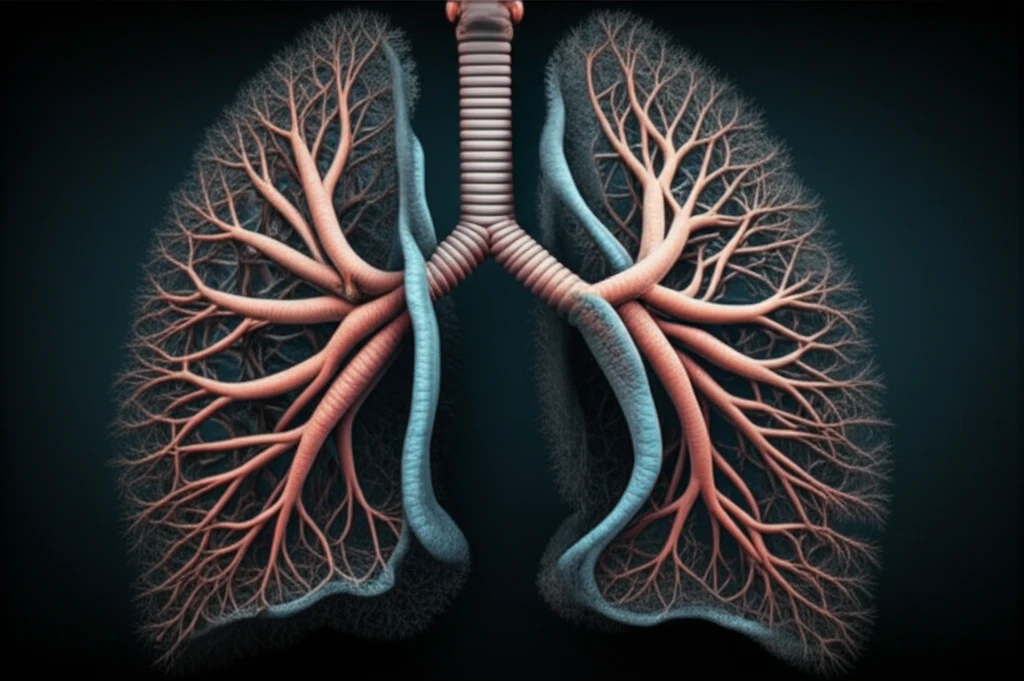
Can a Protein Complex Deficiency Worsen Pneumonia?
"New research reveals how a missing link in your immune system could make you more susceptible to severe pneumonia."
Pneumonia, an infection that inflames the air sacs in one or both lungs, is a serious health concern, especially when it leads to complications or severe illness. The body relies on a complex interplay of immune responses to combat such infections, and scientists are continually working to understand these mechanisms fully.
The ubiquitin proteasome system (UPS) is critical for regulating various cellular processes, including the immune response. Within the UPS, immunoproteasomes play a crucial role in modifying immune responses during infections. These specialized proteasomes, containing subunits like β5i/LMP7, help fine-tune the body's defense mechanisms.
New research has uncovered a surprising link between a deficiency in the β5i/LMP7 immunoproteasome subunit and the severity of pneumococcal pneumonia. This article explores how this deficiency affects the body's ability to fight off the infection and what it could mean for future treatments.
How β5i/LMP7 Deficiency Aggravates Pneumonia

Researchers investigated the impact of β5i/LMP7 deficiency on the course of Streptococcus pneumoniae infection, a common cause of pneumonia. They observed that mice lacking this subunit experienced more severe clinical signs, including a greater loss of body weight and a more pronounced expression of serum amyloid A (SAA), an indicator of acute inflammation.
- Granulocyte Recruitment: The recruitment of granulocytes, a type of white blood cell, was diminished in β5i/LMP7-deficient mice, indicating a compromised immune response.
- Leukopenia and Lymphopenia: A significant decrease in leukocytes, particularly lymphocytes, was observed in the deficient mice, suggesting a systemic immune suppression.
- Elevated LDH Levels: Increased levels of lactate dehydrogenase (LDH), an enzyme released upon tissue damage, were found in the serum of β5i/LMP7-deficient mice, indicating greater tissue injury.
What This Means for You
The study suggests that the β5i/LMP7 subunit is vital for modulating the innate immune response to extracellular bacterial infections like Streptococcus pneumoniae. A deficiency in this subunit can lead to reduced opsonin expression, impairing the body's ability to recognize and eliminate bacteria effectively.
While this research is still in its early stages, it highlights the potential importance of immunoproteasomes in maintaining a robust immune system. Further studies are needed to determine whether these findings can be translated into new treatments or preventive strategies for pneumonia.
Understanding the role of immunoproteasomes in immune defense may pave the way for novel therapeutic interventions targeting the UPS, ultimately improving outcomes for individuals at risk of severe pneumonia.
